Many years since the passing of his respected teacher, Associate Professor Dr. Le Hai Chi, in the mind of Mr. Cao Tien Duc, the only Professor of Psychiatry in Vietnam, he still cannot forget his gratitude. He said: "My teacher treated mentally ill people like normal people. He made me love patients more."
Memories of Professor Cao Tien Duc's deceased teacher
Prof. Dr. Cao Tien Duc is the former Head of the Department of Psychiatry and Medical Psychology, Department of Psychiatry, Hospital 103, Military Medical Academy. He is currently Vice President of the Vietnam Psychiatric Association; Vice President of the Vietnam Anti-Epileptic Association; Member of the Professional Council of the Central Committee for the Protection and Care of Cadres' Health.
Two years ago, after retiring, he moved to the Central Highlands to work as Principal of Buon Ma Thuot University of Medicine and Pharmacy and Chairman of the Board of Directors of Buon Ma Thuot University of Medicine and Pharmacy Hospital ( Dak Lak province). Few people know that he was appointed as a Professor of Psychiatry in Vietnam.
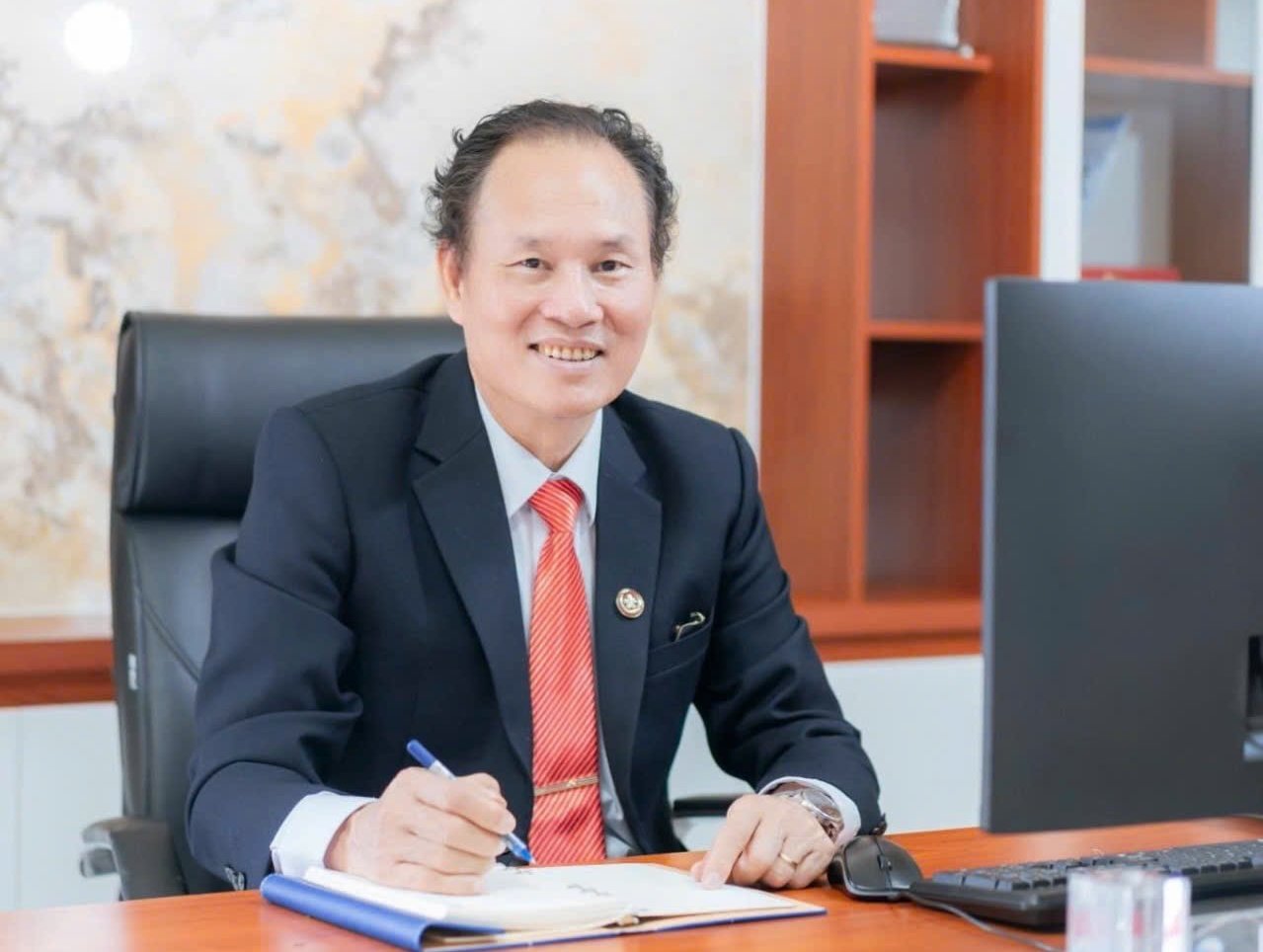
Prof. Dr. Cao Tien Duc is currently the Rector of Buon Ma Thuot University of Medicine and Pharmacy and Chairman of the Board of Directors of Buon Ma Thuot University of Medicine and Pharmacy Hospital (Dak Lak province). He is the only person to date to be awarded the title of Professor of Psychiatry in Vietnam. Photo: Gia Khiem
In a conversation with Dan Viet reporter , Professor Cao Tien Duc said that more than 2 years ago, after retiring, he accepted an invitation to go to the Central Highlands to continue dedicating his heart and soul to the sick as well as generations of students. He said that not many people are interested in the field of psychiatry.
He realized that the field of psychiatry in the Central Highlands provinces was not yet developed, so he wanted to work in the right field. Therefore, ignoring the advice that older people should take on new jobs that were stressful, difficult, and dangerous, he decided to stick with this land of sun and wind.
At that time, a student of Professor Cao Tien Duc shared: "A few times I vaguely saw the teacher's figure on Facebook at a hospital in Buon Ma Thuot City. But I did not believe it was true. Until he said "He loves the Central Highlands so he is a citizen of Buon Ma Thuot". It was a surprise, I was very happy about that, because the Central Highlands, especially Buon Ma Thuot in particular, has a leading expert with extensive experience in the field of psychiatry".
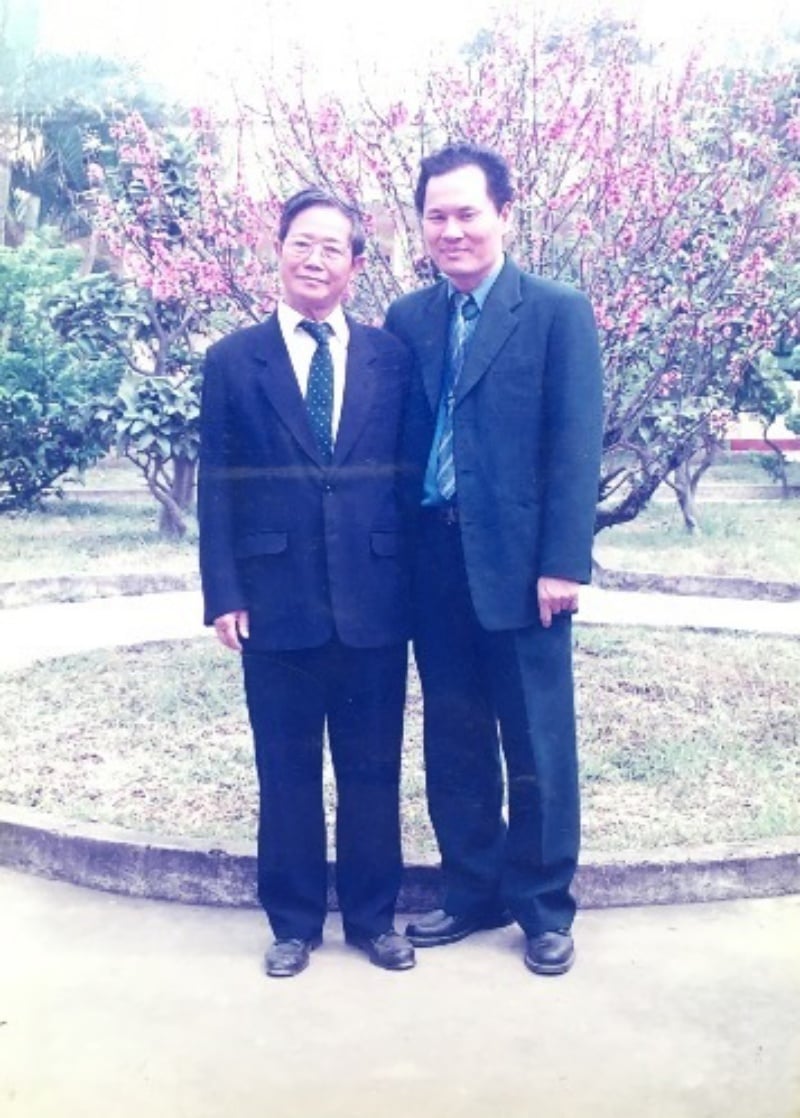
Associate Professor Le Hai Chi (left) and student Cao Tien Duc were photographed in 2004. Photo: NVCC
However, Professor Cao Tien Duc usually flies back to Hanoi for a few days a month. According to him, he still has a relationship with the capital, and some units still invite him to attend conferences, give lectures, seminars, grade exams, and participate in consultations.
In particular, every year on Vietnamese Teachers' Day (November 20), Professor Cao Tien Duc remembers his deceased teacher - Associate Professor Le Hai Chi. Professor Hai Chi was also the head of the Department of Psychiatry and Medical Psychology in the 1980s and had an important influence on Dr. Duc.
"Doctors who want to be good must tackle difficult cases", that is a respectable saying from the deceased teacher that Professor Duc always keeps in mind.
Professor Duc said that in 1981, he did a 2-week clinical internship at the Department of Psychiatry, Military Hospital 103, Hanoi. Although the time was not long, it was enough for him to retain profound memories.
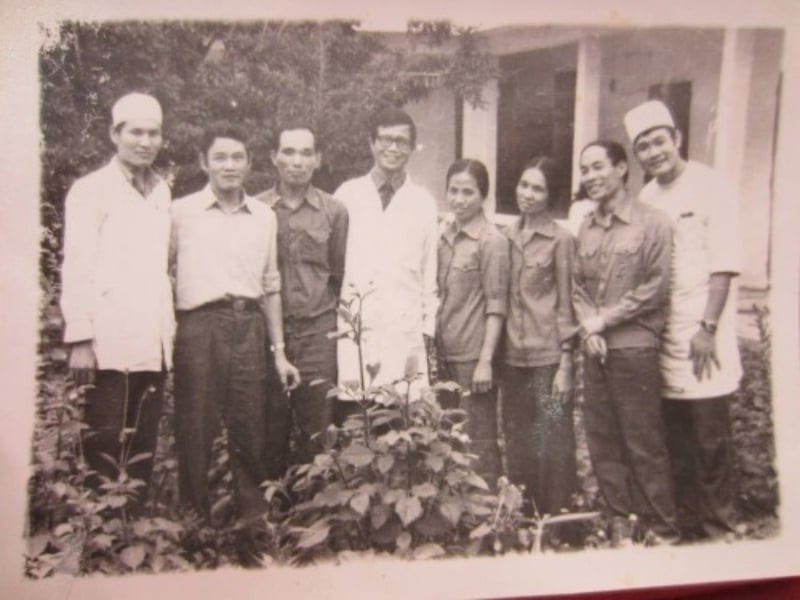
Psychiatrists, Military Hospital 103 in 1983. Photo: NVCC
"Patients in the Psychiatric Department are also normal people like any of us. At that time, although the war was far away, I still met many wounded and sick soldiers coming from the battlefield. The fierce war on the fronts, hardship, deprivation, malaria, toxic chemicals... had caused them to lose a lot of energy, to regain peace for the Fatherland.
They left behind a part of their blood and bones on the battlefield, and in return, following them back to normal life were not only illnesses but also invisible wounds. In the psychiatric department at that time, the patients were special people: they were babies, the elderly, students, workers, farmers, intellectuals and military officers. They were called special patients because their emotions, feelings, thoughts and behaviors were abnormal. Sometimes they lost control and posed a danger to themselves, their families and society," Prof. Duc recalled.
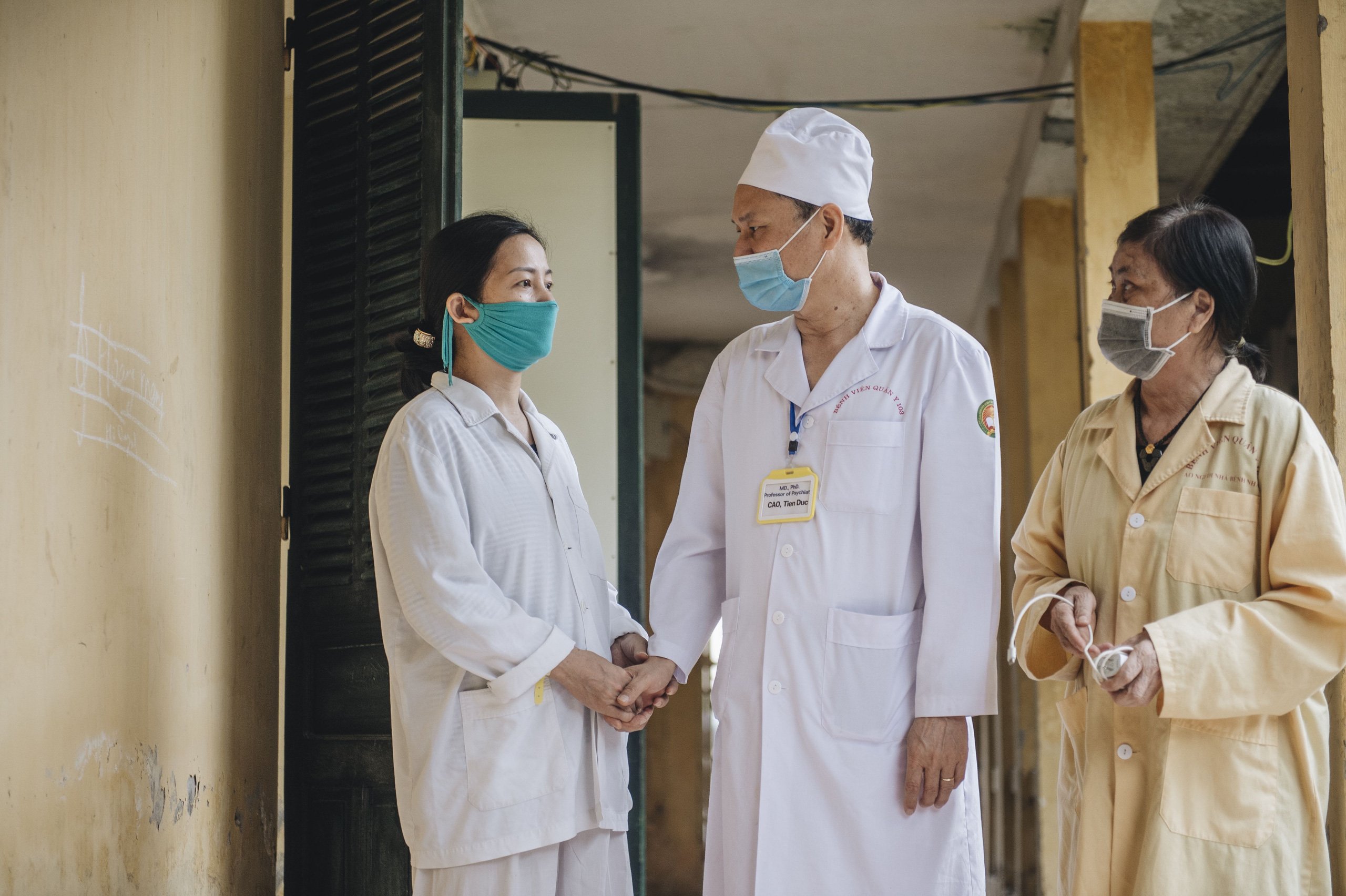
Prof. Dr. Cao Tien Duc at the time he was treating a patient at the Department of Psychiatry, Hospital 103, Military Medical Academy. Photo: NVCC
According to Professor Duc, at that time the psychiatric department was still dilapidated, with extremely poor facilities and medicine. Society's understanding of mental illness at that time was still limited, leading many people to despise, scorn, and treat patients unfairly.
"People believed that illness was caused by gods and demons. Therefore, most patients were not taken to the hospital, but their families would take them to pagodas, to pray, to ward off bad luck. Most psychiatric facilities in the country at that time had to detain patients, isolating them from the outside society. Even doctors studying and working in the psychiatric department like us were sometimes laughed at," Professor Duc recalled.
The first lecture throughout the journey of more than 40 years accompanying mentally ill people of Professor Cao Tien Duc
Mr. Duc was directly supervised by Associate Professor Le Hai Chi, his head teacher. He always remembers his first lectures, where the teacher taught him to respect patients, to love and cherish them, and to consider them as his own family.
"Every week, he took us to the clinic and explained to us each symptom on the patient. He taught students scientific research methods. We had very useful research exercises and scientific activities.
Professor Chi contributed greatly to the development of the hospital by applying the world's advanced model - the 'managed open door' model to the Psychiatry department. The old patient detention cells were demolished and replaced with airy, open rooms," Professor Duc recalled.
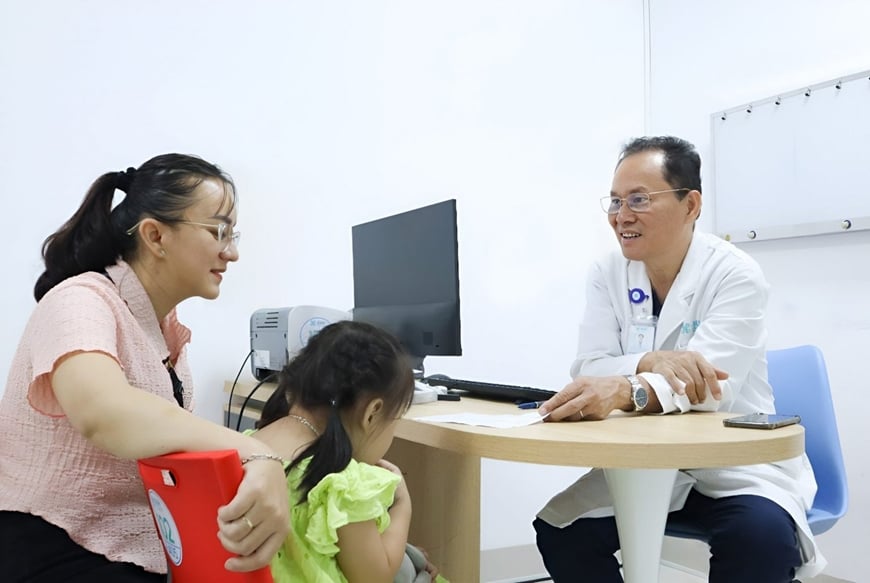
He always loves his patients like his own family. Photo: NVCC
In particular, the space around the department is isolated and has an unusually peaceful atmosphere. Patients are not only examined, treated with medicine, other therapies such as electric shock, insulin shock, brain gas injection, etc., but also psychological therapy is used. They exercise and play sports such as volleyball and table tennis.
"Moreover, Professor Chi and Doctor Nguyen Tho developed music therapy, patients dance, sing and act on stage. Every week, they enjoy cultural programs performed by famous artists. Patients participate in painting, pottery making, weaving mats, sewing clothes, growing flowers... Just like that, without knowing when, I felt more compassion and love for my patients. The psychiatric department for me is no longer a hospital, but like a second home. This place is extremely close and peaceful," Professor Duc was moved.
Returning after 2 weeks of internship in the psychiatric department, Military Hospital 103, Mr. Duc kept thinking about the mentally ill, about the image of Mr. Chi, about the doctors, about the staff and all the people he met here.
It was from here that he dreamed of becoming a psychiatrist. Luckily, the department had a quota for more doctors. Mr. Chi remembered Cao Tien Duc as a diligent and obedient student who had studied at the department before graduating.
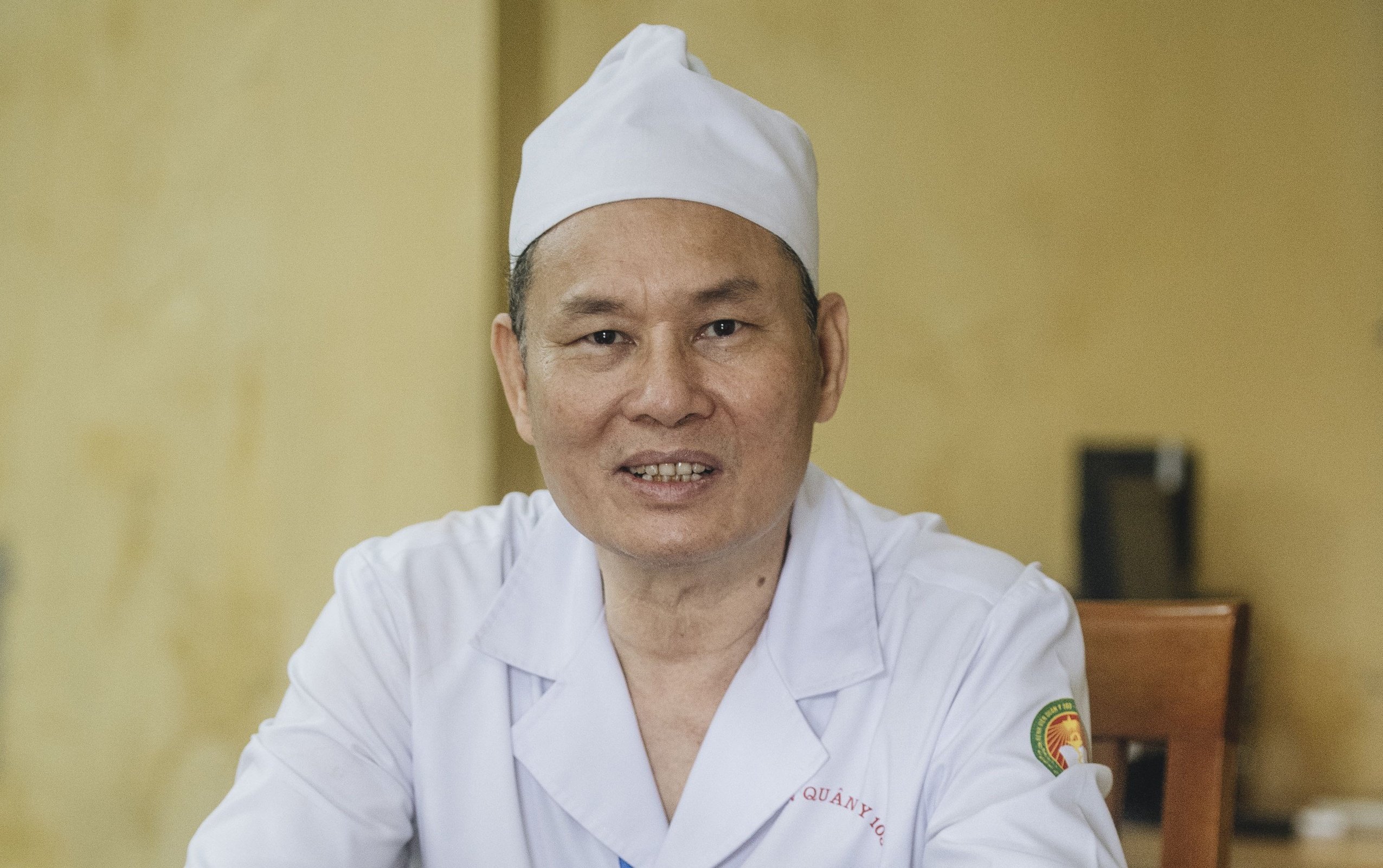
Professor Duc shared: "I remember once at a medical conference, a doctor came up to shake my hand and asked me what specialty I worked in. I said I worked in psychiatry, he smiled awkwardly and walked away. At that time I felt a bit hurt, but after encountering similar situations many times, I gradually adapted." Photo: NVCC
To work in the psychiatric department, Mr. Duc had to try harder and get good results in his graduation exam. In 1982, his dream came true as the chief physician of the department. He received help and dedicated guidance from Mr. Hai Chi, Mr. Ngan, Mr. Tan, Mr. Tho, teachers at Hospital 103, Military Medical Academy and teachers in the field of psychiatry in Vietnam.
Over the past 40 years, the only professor of Psychiatry in Vietnam has treated hundreds of thousands of patients with mental health problems, helping them recover naturally and return to work and contribute to society.
In 1988, when he reached retirement age, Associate Professor Le Hai Chi went to Angola to work as an expert. With extensive medical knowledge and fluent in 5 foreign languages, he served as the director of the military medical institute, helping a lot in the health care work of the Angolan people. Associate Professor Chi was also the head of the internal medicine department at the University of Medicine of Luanda, Angola. In the last years of his life, despite his poor health and having suffered 2 strokes, Professor Chi continued to contribute to the Angolan health sector. In 2012, he passed away in the capital city of Luanda, and his body was brought back to Hanoi with a solemn funeral.
"I always remember him, an exemplary teacher, very talented and very dedicated. He always loved his patients and his beloved students with all his heart. If I could choose a career again, I would definitely still choose this special career. To me, the image of Mr. Le Hai Chi, a leader, a teacher, a doctor who devoted himself to his patients and beloved students, will remain in my heart forever," added Professor Cao Tien Duc.
"I still consider young mental patients as my children, and old patients as my parents and siblings."
Sharing about his work, Professor Duc recalled that as a doctor treating mental patients in Vietnam in the past, he was still more or less discriminated against and disrespected.
"I remember once at a medical conference, a doctor came up to shake my hand and asked me what specialty I worked in. I said I worked in psychiatry, he smiled awkwardly and walked away. At that time I felt a bit hurt, but after encountering similar situations many times, I gradually adapted. Just think simply, being a doctor is a job to save people, a legitimate job, and what other people think is fine.
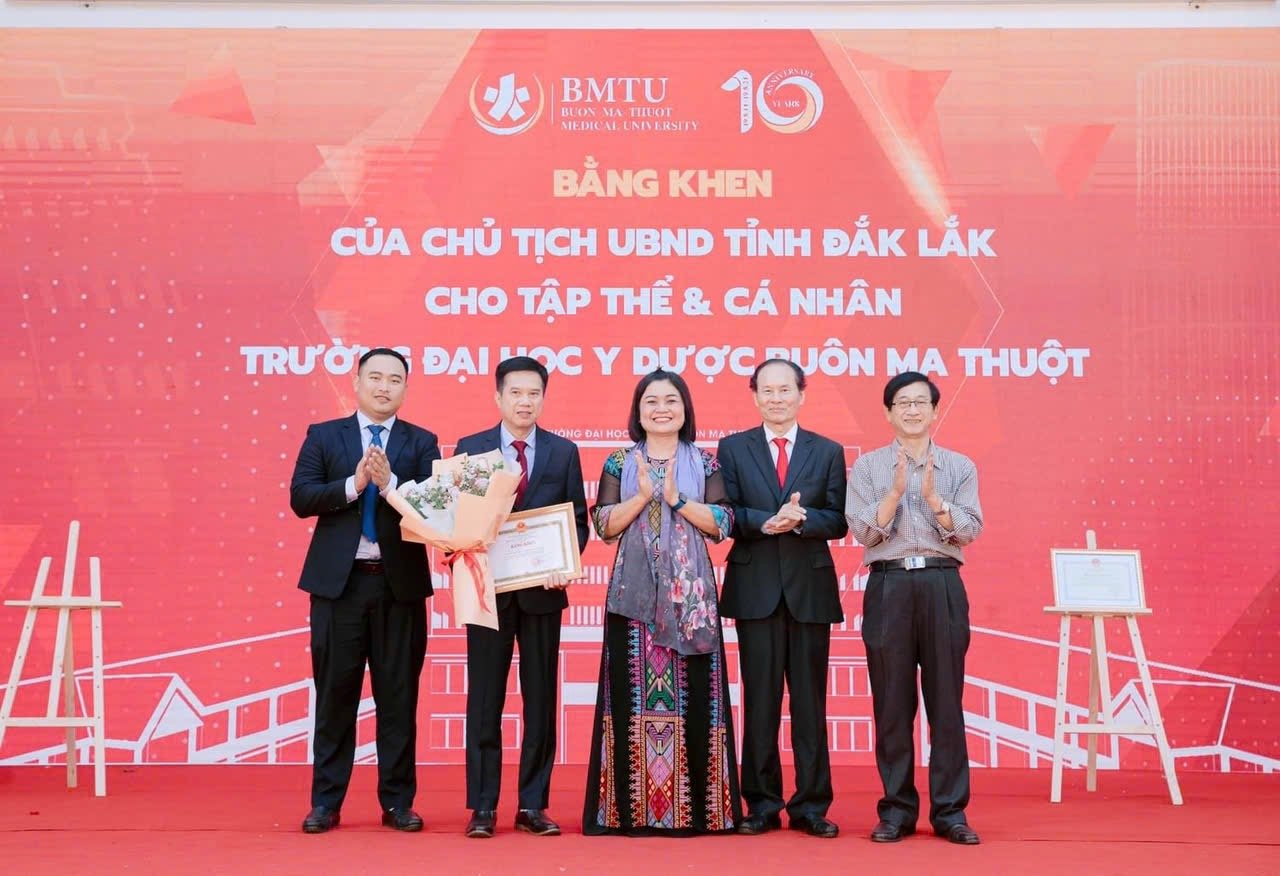
Professor Cao Tien Duc and the collective and individuals of Buon Ma Thuot University of Medicine and Pharmacy received certificates of merit from the Chairman of the People's Committee of Dak Lak province. Photo: NVCC
However, there are psychiatrists who do not dare to introduce their profession because they are afraid of discrimination. For that reason, many doctors did not want to pursue a career in psychiatry. I do not see anything bad about being a psychiatrist. In particular, my teacher, Associate Professor Le Hai Chi, is very respected because he is very decent, talented, and everyone admires him. Later, when I went abroad, I saw that psychiatrists are very respected, they are very proud of their profession and are always favored by the state," Professor Duc laughed.
He shared that mental health is a family matter, every family has someone with a problem. Don't just think of mental health as "crazy". Simple things like not eating well, not sleeping well, stress in life, disharmony between husband and wife, disobedient children, alcohol and drug abuse, excessive gaming and internet use... are all mental problems.
"Mental illness symptoms are very special. If the patient does not share, no machine can detect them. A doctor must treat the patient as a relative to be able to exploit the illness and make the correct diagnosis. To cure the patient, the doctor must gain their trust and make them feel the doctor's sincerity. I still consider young mental patients as my children, and old patients as my parents and siblings. Sometimes I want to rest, but the patient keeps calling, and when they call, I cannot bear to refuse...", Professor Duc said.
Professor Cao Tien Duc also shared that currently taking on many new responsibilities at Buon Ma Thuot University of Medicine and Pharmacy and Buon Ma Thuot University of Medicine and Pharmacy Hospital, he also hopes to train many doctors and pharmacists with real capacity not only in theory but also in practical skills and medical ethics to best serve patients.
He hopes to build a strategic goal by 2030, where this place will be a center, a complete ecosystem between scientific research training and treatment, a modern hospital.
"Currently, the hospital has 200 beds compared to the plan, but in reality, there are 300 treatment beds. Our goal is to try to increase the number to 700 beds in a few years for treatment and high-tech applications. The hospital is only a third-class district hospital, but has many central-level techniques.
Over the past 2 years, more than 300 children have been born through in vitro fertilization, 500-600 patients with myocardial infarction have been treated each year, heart catheterization has been a great success, and many other modern techniques such as removing kidney stones and gallstones through the skin... are not available in all provinces. I hope that the next generation of students will take advantage of the modern technology that enhances the role of doctors in treating patients," he added.
Source: https://danviet.vn/thu-gui-nguoi-thay-dac-biet-da-khuat-cua-giao-su-duy-nhat-nganh-tam-than-hoc-viet-nam-20241119073804727.htm





![[Photo] Solemn opening of the 8th Congress of the Central Public Security Party Committee, term 2025-2030](https://vphoto.vietnam.vn/thumb/1200x675/vietnam/resource/IMAGE/2025/10/4/f3b00fb779f44979809441a4dac5c7df)
![[Photo] Bustling Mid-Autumn Festival at the Museum of Ethnology](https://vphoto.vietnam.vn/thumb/1200x675/vietnam/resource/IMAGE/2025/10/4/da8d5927734d4ca58e3eced14bc435a3)
![[Photo] General Secretary To Lam attends the 8th Congress of the Central Public Security Party Committee](https://vphoto.vietnam.vn/thumb/1200x675/vietnam/resource/IMAGE/2025/10/4/79fadf490f674dc483794f2d955f6045)





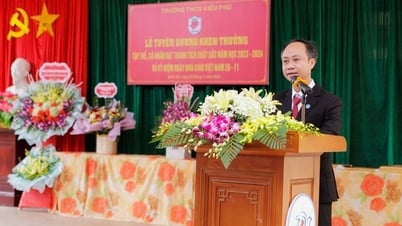
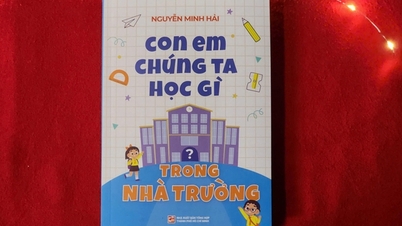



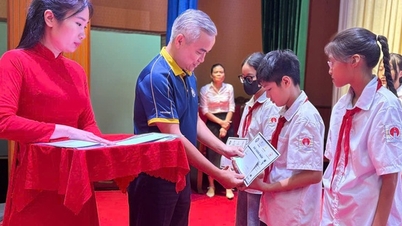

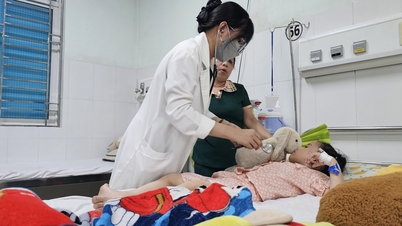















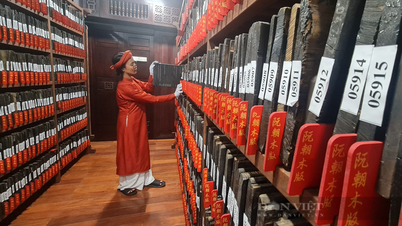

























![[VIDEO] Summary of Petrovietnam's 50th Anniversary Ceremony](https://vphoto.vietnam.vn/thumb/402x226/vietnam/resource/IMAGE/2025/10/4/abe133bdb8114793a16d4fe3e5bd0f12)

![[VIDEO] GENERAL SECRETARY TO LAM AWARDS PETROVIETNAM 8 GOLDEN WORDS: "PIONEER - EXCELLENT - SUSTAINABLE - GLOBAL"](https://vphoto.vietnam.vn/thumb/402x226/vietnam/resource/IMAGE/2025/7/23/c2fdb48863e846cfa9fb8e6ea9cf44e7)















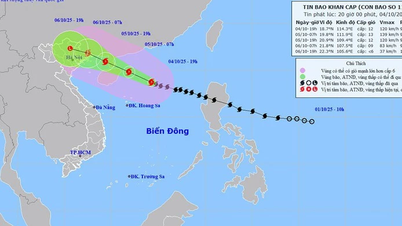

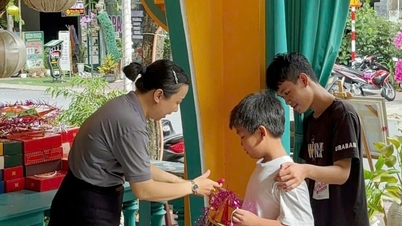

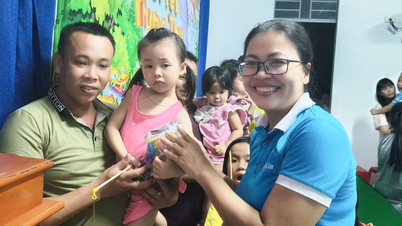













Comment (0)